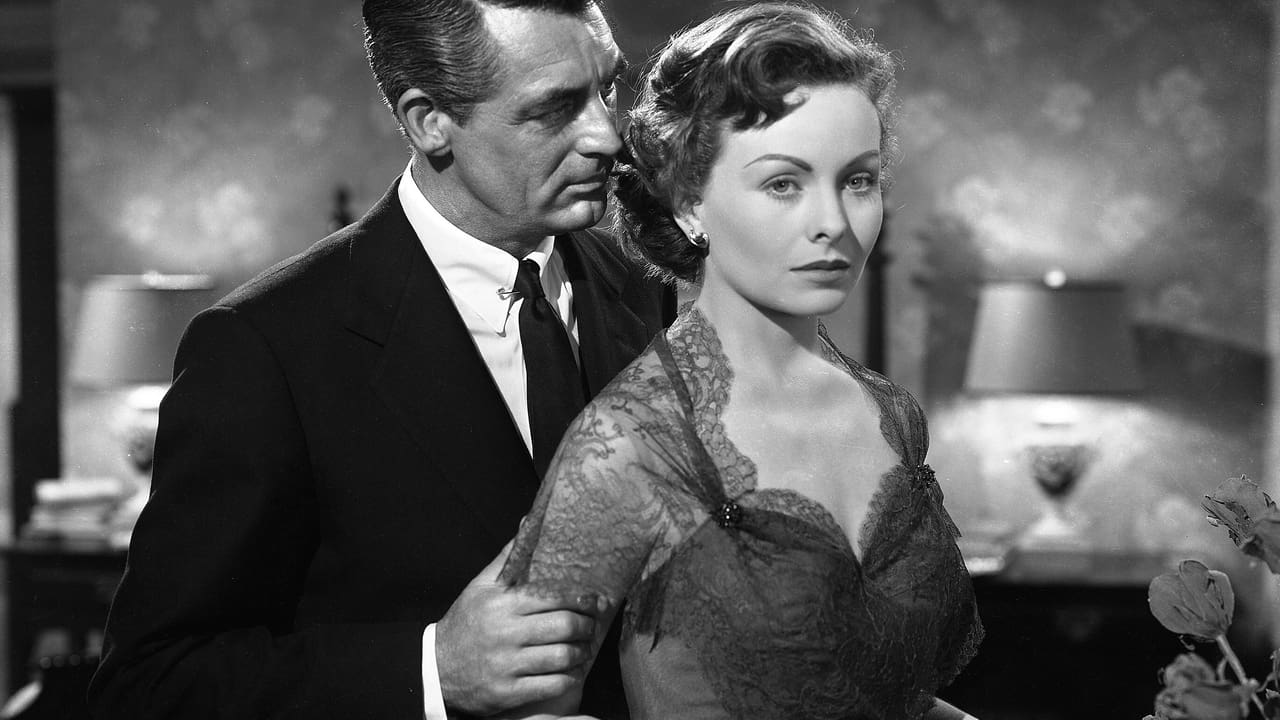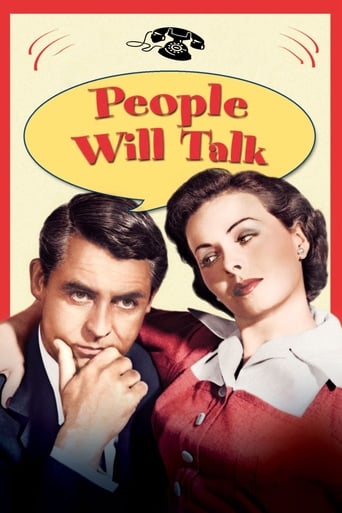

Plot so thin, it passes unnoticed.
... View MoreLet's be realistic.
... View MoreAt first rather annoying in its heavy emphasis on reenactments, this movie ultimately proves fascinating, simply because the complicated, highly dramatic tale it tells still almost defies belief.
... View MoreThis is a small, humorous movie in some ways, but it has a huge heart. What a nice experience.
... View MoreWhen I heard that director Joe Mankiewicz was adapting the well- known, pre-war German play, "Dr. Pratorius", into a movie, I wondered who he was going to cast as Sherlock Holmes and Dr. Watson. Basil Rathbone had been off the screen since 1946, but I certainly hoped Mankiewicz could induce him to return. When I heard that Finlay Currie had been signed, I assumed he would play Holmes, whilst Walter Slezak essayed Dr. Watson. (Their accents were all wrong for the parts, but they would have made a great Holmes-Watson combo all the same). Instead, Holmes and Watson have been completely eliminated — as they were by playwright Goetz himself (incidentally, the name is pronounced: "Gets") in his own 1949 movie adaptation. Finlay Currie — giving one of the finest performances of his ultra-distinguished career — plays an entirely new yet fascinating character, a brilliant Mankiewicz creation; whilst Walter Slezak has a cleverly expanded role as the lead character's warmly amusing friend and loyal confidant.Unappreciated in its day by many critics. as well as the movie- going public, "People Will Talk" has yet to find the niche it deserves in any popular appreciation of Mankiewicz's work. More astringent than "All About Eve", more engaging than "A Letter to Three Wives", more satirical than "Million Dollar Legs", and far more dramatic than "The Barefoot Contessa", this impassioned, intense, quirky, captivating, wittily unconventional, ingeniously crowded-with-good-things "Pratorious", is the cinematic high-point of Mankiewicz's career. AVAILABLE on an excellent Fox DVD.
... View More"People Will Talk" hearkens back to those classic Hollywood...oh, who the hell am I kidding: it's utter rubbish. Every second of watching it, you're slapped upside the head with the fact that it's a wooden script written by people who lacked enough wit to write for Preston Sturges or Howard Hawks, but are contractually-obligated to crank it out. Every line is a declamation with the most unnatural dialogue imaginable. This is the first time I've actually hated one of Cary Grant's characters in a film; he's absolutely insufferable, delivering one pompous pronouncement after another, through his nose. Hume Cronyn turns in a two-dimensional performance. The romance is utterly perfunctory, despite the lovely Jeanne Crain. Really, I can think of very little to recommend "People Will Talk" and I regret having wasted nearly two hours of my life on it.
... View MoreWhen I read the short description of this movie here, I got the impression it was going to be a nice, light, romantic comedy - as so many movies with Cary Grant in them. But I was terribly disappointed. This strange movie was not romantic at all, and not a bit fun either, but rather depressing and strange. Odd characters who are doing odd things out of odd motives, and having odd relationships with each other. The title "People will talk" is also misleading.I think Cary Grant, forever charming and incredibly handsome, was a waste in this one. I think he ought not to have lent himself to it - after-all, he was not exactly hard up for money at that point... Moreover, I think that Debra, his love interest in this movie, is an unpleasant character, both in looks and personality. Do not watch this movie - it is a waste of time and the opposite of feel good.
... View MoreIt's interesting to note the relatively solid rating this film gets here on IMDb (7.3 at the time of this writing), and to read the reviews and discussion. There's no doubt about it -- this is an odd film -- almost desafinado -- slightly out of tune.The opening segment of the film is interesting...and funny. Pipsqueak Professor Elwell (Hume Cronyn) is interviewing Margaret Hamilton (the witch in "The Wizard Of Oz") trying to find out information about the mysterious Dr. Praetorious (Cary Grant) and his constant companion Shunderson (Finlay Currie; the devout follower of Christ in "Ben-Hur").From there we meet young Jeanne Crain who faints in class. She goes to Dr. Praetorius and learns she is pregnant, and he learns she is unwed. She attempts suicide and stays at his clinic, but then disappears. But, Cary Grant pursues her to her uncle's farm where she and her father unhappily live...but not for long...he proposes.And then comes the climax of the film -- the hearing where Elwell brings charges against Preatorious. It's a great scene as Grant responds to all the charges, one by one. But then comes the question about the mysterious Shunderson, which he refuses to answer. Will he fall on this? No, because Shunderson enters the room and tells his own marvelous story. Hearing over. And Shunderson, in private, calls Elwell a "little man".I enjoy this film every time I watch it, and I must have watched it more than half-a-dozen times. And the main reason I enjoy it is the wonderful performance of an aging and very tan Cary Grant; it really is one of his best performances. Jeanne Crain is superb here, as well, and this is one of her best role. Finlay Currie is wonderful as the mysterious Shunderson. Although his character is not likable, Hume Cronyn's performance is exceptional. Walter Slezak plays a lovable curmudgeon who is friends with Praetorious. And this was the film where I first noticed Sidney Blackmer...a fine and underrated character actor; this is one of his best roles. Basil Ruysdael does well as the college dean.Earlier I said that this film was almost desafinado. But that is not a negative. It's gloriously different. Highly recommended!
... View More